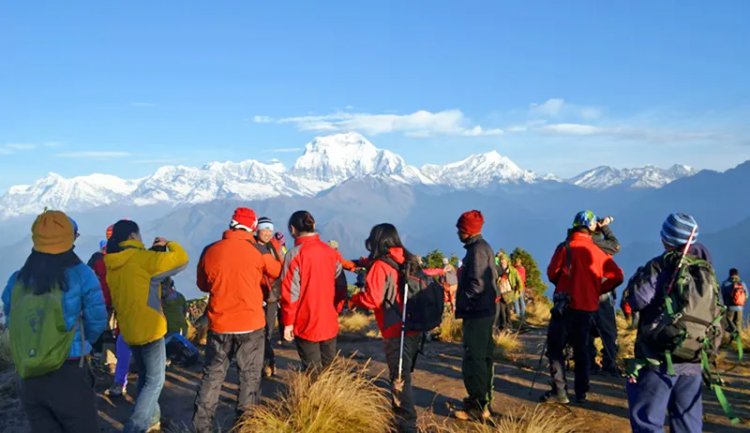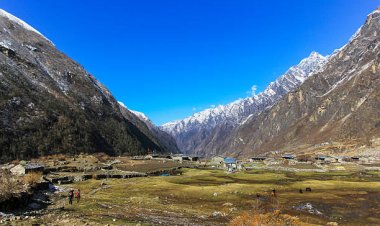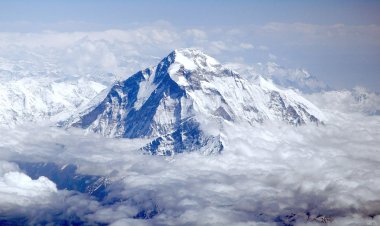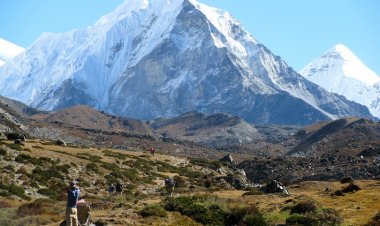The Impact of Tourism on Nepal's Economy and Environment
This article explores the impact of tourism on environment and economy of Nepal. Discover how tourism has affected Nepal's economy and learn about the environmental challenges that arise from increased tourism.

Without a doubt, tourism is a significant contributor to Nepal's thriving economy. It is responsible for providing sustenance to many individuals and is also the cause of prosperity for several households. The tourism industry has provided employment opportunities to numerous unemployed people, thereby improving their lifestyles. The absence of the tourism industry would lead to the deprivation of food and other necessities for many. However, just like any other aspect, tourism also has its pros and cons. This article examines both tourism's positive and negative aspects.
Below are some of the positive impacts that tourism can have on the economy and environment:
1. Foreign currency earning:
Tourists from various countries are Nepal's primary foreign currency source. As they travel to relax and have fun, they spend money on local services and facilities provided by business owners, which creates an opportunity to earn foreign currency. This benefits both the tourists and the local economy.
2. Contribution to government revenue:
When tourists arrive in any country, they pay for entry permits or visa applications. Additionally, they spend money on various services and facilities provided by service operators. These operators are required to pay taxes to the government, which helps increase the government's revenue. Therefore, both the taxes paid by service providers and the money spent by tourists contribute significantly to the government's revenue.
3. Employment opportunities:
As the number of tourists increases, there is a greater need for more services and facilities. The tourism industry requires skilled manpower, providing educated individuals with employment opportunities. This can reduce complaints about being unemployed or underemployed. When tourists arrive at a destination, they have a variety of interests and require various services, such as accommodation, transportation, preservation of attraction areas, cultural shows, and other activities. These services create job opportunities that contribute to the area's economic growth.
4. Infrastructural development:
Infrastructure plays a vital role in attracting tourists to a particular area. Tourists are unlikely to visit areas where infrastructure development has not taken place. While most places in cities are well-developed, rural areas often lack the necessary infrastructure. However, when people realize the benefits of tourism, they become motivated to develop their area. As many tourists are interested in enjoying nature, they tend to visit rural areas, which can lead to the development of necessary infrastructure.
5. Contribution to local business and economy:
Small-scale local industries play a significant role in supporting large industries, both directly and indirectly. They also contribute to the growth of local businesses by utilizing their services in the service sector. When tourists visit rural areas, they prefer staying in a home rather than hotels. This creates a demand for local products, which tourists are willing to pay for, generating income for the local community. By doing so, the local economy can flourish and grow.
6. Increase in living standard of people:
Tourism is a diverse business with several sectors, and its advantages reach a wide range of individuals and groups. When tourism thrives in a region, it generates more revenue and opens up prospects for greater engagement from all stakeholders. This increase in revenue and engagement can contribute to an improvement in the local community's living conditions. As a result, tourism may benefit the local economy by producing employment and opening up prospects for entrepreneurship and community development.
7. Improve quality product:
When traveling, tourists often seek high-quality things to guarantee that they get good value for their money. Because visitors would not accept satisfactory items, this demand for quality products may motivate local manufacturers to raise the level of their products. As a result, the local community gains access to and benefits from these higher-quality products. Finally, the push for higher-quality items in response to tourist demand might have a knock-on impact, resulting in better living conditions for the local population.
Below are some of the adverse effects of tourism on Nepal's economy and environment:
1. Inflation:
Inflation is the process of raising and lowering the value of a currency. Tourism creates the situation due to the unbalanced payment of nations and the comparison of local currencies in dollars. The flow of tourists in certain places may cause inflation, which may create an economic crisis in certain places where tourists visit. Therefore, while tourism can provide significant benefits to the local economy, it is essential to manage its impact to avoid the negative consequences of inflation.
2. Dependency on tourism:
Tourism can contribute to any location's economic growth, but it can also create dependency and create crises in certain situations. Excessive reliance on tourism can lead to negative consequences, causing difficulties in sustaining businesses and forcing people to seek alternative livelihoods. This was particularly evident during the COVID-19 pandemic when travel restrictions halted tourism activities, and areas in Nepal that heavily relied on tourism were unable to meet their basic needs. Thus, while tourism can be a valuable source of income, it is essential to diversify the economy and not become overly reliant on tourism as the sole source of revenue. By doing so, communities can better withstand the negative impacts of crises and maintain a sustainable economy.
3. Seasonally load:
Tourism is a seasonal business and has its highs and lows. During the high season, there is a surge in the number of tourists, which creates a high seasonal load to handle. On the other hand, during the low or off-season, the arrival of tourists is low, which means there is not much work to do and consequently, low income.
4. Less priority to domestic products:
Tourism businesses often prioritize providing standard services and branded products to tourists who come from abroad. This can create a situation where domestic products are given less priority, and businesses may choose to import goods from other countries instead. This can lead to fewer opportunities for domestic products and industries to thrive.
5. Illegal economical activities:
Tourists may make illegal demands from those engaged in the tourism industry, with the belief that money can buy anything. Unfortunately, some individuals may be willing to accept such illegal demands, which can harm the long-term sustainability of the business. These practices can also create negative impacts on society and the economy of certain areas.
As tourism carries both positive and negative aspects, it is important to manage tourism in a sustainable way that maximizes the benefits while minimizing the negative impacts. This can be achieved by implementing policies and regulations that ensure environmental and cultural preservation, as well as equitable economic distribution. By doing so, Nepal can continue to enjoy the benefits of tourism without compromising its natural and cultural heritage for future generations.
What's Your Reaction?








































































































